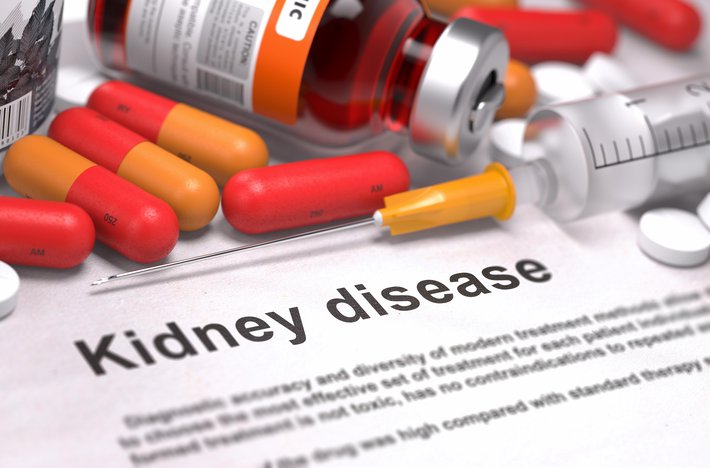What is kidney disease? The definition is quite simple. A number of issues cause poor kidney function, and the progressive loss of this function leads to chronic kidney disease. Your kidneys are unable to filter everything they must, and all these toxins and excess liquid stay in the body.
As there is no way to reverse kidney disease, it results in the reduction of a patient’s lifespan. Of course, every person with this diagnosis, as well as his/her relatives, wish to understand the patient’s life expectancy and prognosis better. They depend on many personal factors like age, health condition, genetics and so on. Nevertheless, there are clear statistics that can be used to predict the prognosis of each case.
Causes and symptoms
Kidney disease doesn’t usually appear out of the blue. It is caused by some health problems or diseases which make kidneys perform worse and worse. High blood pressure and diabetes are the two predominant causes of chronic kidney diseases. Other causes include:
-
Glomerulonephritis;
-
Genetic disorders;
-
Problems with the urinary tract;
-
Infection;
-
Drugs that are poisonous to the kidneys;
-
Autoimmune diseases.
Chronic kidney disease develops slowly, and you may not notice anything is wrong unless your kidneys are significantly damaged. Here are some early warning symptoms:
-
Fatigue and weakness;
-
Changing amounts of urine;
-
Vomiting, illness, loss of appetite;
-
Muscle spasms;
-
Foot swelling;
-
Problems sleeping;
-
Itching;
-
Shortness of breath.
All these can be the symptoms of other diseases and health problems, but if you are at an elevated risk of kidney disease, it’s best to get a medical examination.
The five stages of kidney disease
Doctors define five stages of kidney disease. The third stage is divided into two separate sub-stages. Each stage is defined according to glomerular filtration rate (GFR).
Stage 1 represents the normal functioning of kidneys a GFR of 90 mL/min or more. Stage 2 is a GFR of 60-89 mL/min. At this stage, you can have insignificant symptoms and the emerging disease can be prevented.
Stage 3 is the crucial point where kidney disease becomes chronic and the loss of function progresses. This stage is divided into two sub-stages. Stage 3A is defined by a mild loss of kidney function with a GFR of 45-59 mL/min. Stage 3B displays a moderate loss of function and a GFR of 30-44 mL/min. At stage 4, a severe loss of kidney function is present with a GFR of only 15-25 mL/min. At stage 5, kidney function is completely lost and the patient experiences kidney failure.
What is the life expectancy with kidney disease?
A patient’s life expectancy varies depending on their age and sex. Various studies show that women with kidney disease live longer than men with the same diagnosis, but this only applies to stages 1, 2 and 3 of the disease.
For example, a 50-year-old man may be expected to live 22 years with stage 1 kidney disease, 18 years with stage 2, 10 years with stage 3, and 7 years with stage 4. As for a woman of the same age, these numbers are 26, 22, 13 and 8 years, respectively.
How long you can stay in 3 stage kidney disease depends on your sex, age, health condition, genetics, diet, and compliance with the doctor’s treatment.
Buffalo Home Care for people with kidney disease
Patients with kidney disease must do whatever is possible to prevent the progression of the disease and extend one’s life expectancy and good health. Here at Buffalo HomeCare we provide personal assistance for people with various diseases as well as the elderly. Our skilled caregivers will do their best to reduce the health risks leading to kidney failure. Caregivers control the patient’s diet, the hydration process during the day, and the doctor’s prescriptions, which are the most important in ensuring a good quality of life.
 English
English
 Spanish
Spanish


Comments